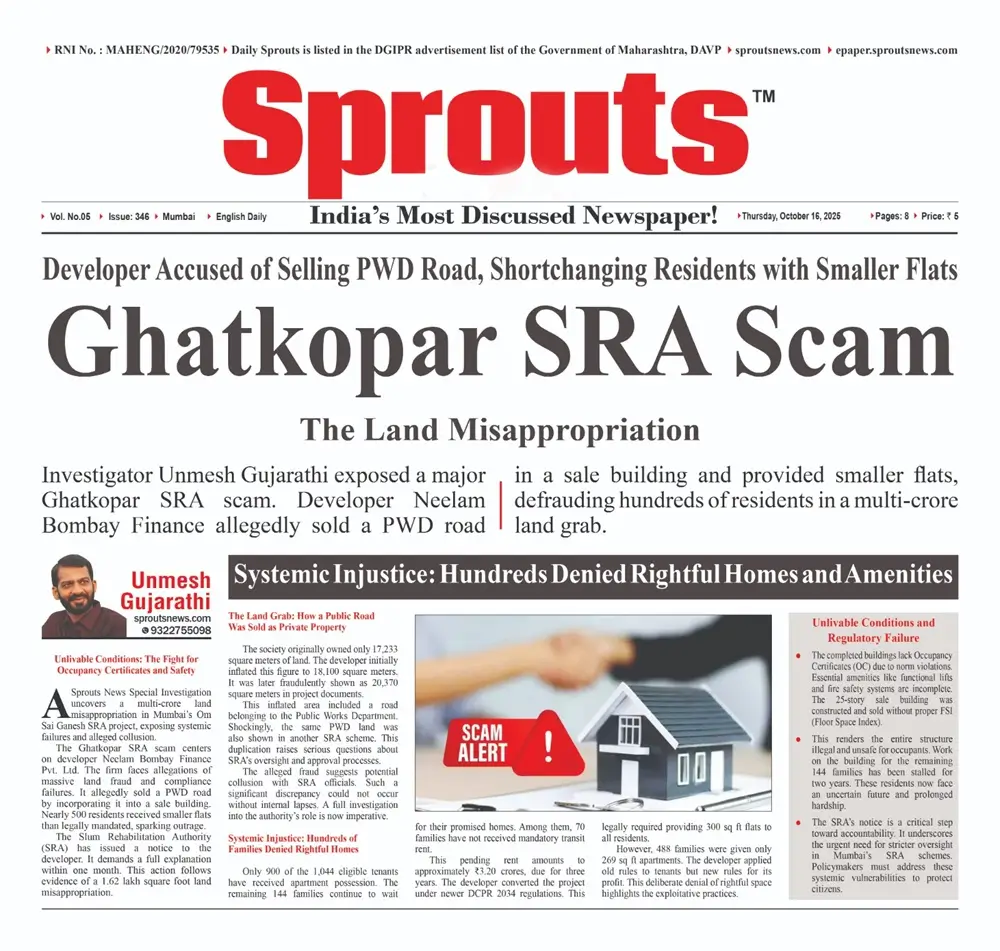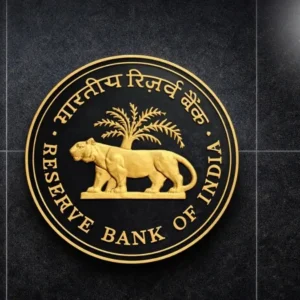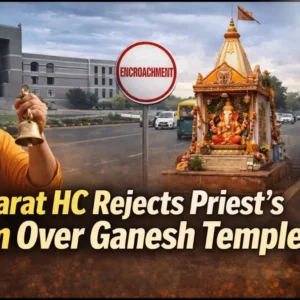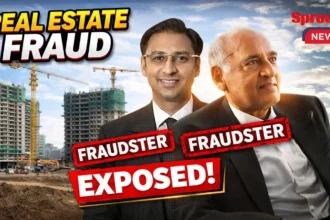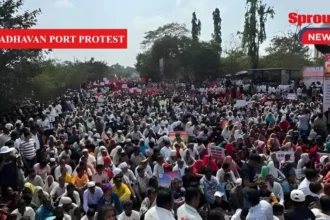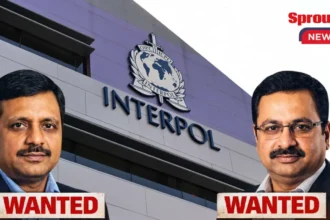Ghatkopar SRA Scam: Developer Neelam Bombay Finance Accused of Selling PWD Road, Shortchanging Residents with Smaller Flats
• The Land Misappropriation: Inflated Area and a Missing PWD Road
• Systemic Injustice: Hundreds Denied Rightful Homes and Amenities
• Unlivable Conditions: The Fight for Occupancy Certificates and Safety
Sprouts News Investigation Unmesh Gujarathi uncovers a shocking Ghatkopar SRA scam where developer Neelam Bombay Finance allegedly sold a PWD road and cheated hundreds of residents with smaller flats. The Slum Rehabilitation Authority (SRA) has issued a notice demanding clarification on the 1.62 lakh sq. ft. land misappropriation. This exposes deep-rooted collusion and negligence in Mumbai’s housing system.
- Ghatkopar SRA Scam: Developer Neelam Bombay Finance Accused of Selling PWD Road, Shortchanging Residents with Smaller Flats
- • The Land Misappropriation: Inflated Area and a Missing PWD Road
- • Systemic Injustice: Hundreds Denied Rightful Homes and Amenities
- • Unlivable Conditions: The Fight for Occupancy Certificates and Safety
- The Land Grab: How a Public Road Was Sold as Private Property
- Systemic Injustice: Hundreds of Families Denied Rightful Homes
- Unlivable Conditions and Regulatory Failure
A Sprouts News Special Investigation uncovers a multi-crore land misappropriation in Mumbai’s Om Sai Ganesh SRA project, exposing systemic failures and alleged collusion.
The Ghatkopar SRA scam centers on developer Neelam Bombay Finance Pvt. Ltd. The firm faces allegations of massive land fraud and compliance failures. It allegedly sold a PWD road by incorporating it into a sale building. Nearly 500 residents received smaller flats than legally mandated, sparking outrage.
The Slum Rehabilitation Authority (SRA) has issued a notice to the developer. It demands a full explanation within one month. This action follows evidence of a 1.62 lakh square foot land misappropriation.
Click Here To Download the News Attachment
The Land Grab: How a Public Road Was Sold as Private Property
The society originally owned only 17,233 square meters of land. The developer initially inflated this figure to 18,100 square meters. It was later fraudulently shown as 20,370 square meters in project documents.
This inflated area included a road belonging to the Public Works Department. Shockingly, the same PWD land was also shown in another SRA scheme. This duplication raises serious questions about SRA’s oversight and approval processes.
The alleged fraud suggests potential collusion with SRA officials. Such a significant discrepancy could not occur without internal lapses. A full investigation into the authority’s role is now imperative.
Also Read: BJP Faces Backlash Over Pune Land Scam Accused Swati Pachundkar Induction.
Systemic Injustice: Hundreds of Families Denied Rightful Homes
Only 900 of the 1,044 eligible tenants have received apartment possession. The remaining 144 families continue to wait for their promised homes. Among them, 70 families have not received mandatory transit rent.
This pending rent amounts to approximately ₹3.20 crores, due for three years. The developer converted the project under newer DCPR 2034 regulations. This legally required providing 300 sq ft flats to all residents.
However, 488 families were given only 269 sq ft apartments. The developer applied old rules to tenants but new rules for its profit. This deliberate denial of rightful space highlights the exploitative practices.
Unlivable Conditions and Regulatory Failure
The completed buildings lack Occupancy Certificates (OC) due to norm violations. Essential amenities like functional lifts and fire safety systems are incomplete. The 25-story sale building was constructed and sold without proper FSI (Floor Space Index).
This renders the entire structure illegal and unsafe for occupants. Work on the building for the remaining 144 families has been stalled for two years. These residents now face an uncertain future and prolonged hardship.
The SRA’s notice is a critical step toward accountability. It underscores the urgent need for stricter oversight in Mumbai’s SRA schemes. Policymakers must address these systemic vulnerabilities to protect citizens.


